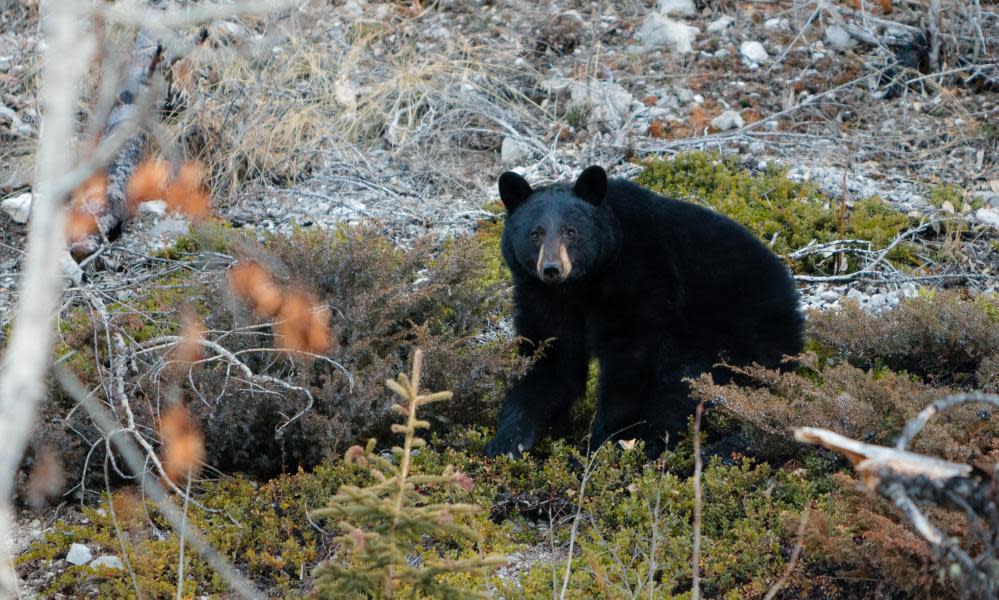Woman killed in rare attack by black bear in remote Alberta forest

Police in Canada say a 26-year-old woman working as a helicopter engineer in Alberta was killed by a black bear on Saturday, in a rare attack by one of the country’s largest predators.
The woman was mauled by what witnesses believe was an adult black bear in a remote area of north-west Alberta, said police. A co-worker who witnessed the attack helped scare off the bear before calling for help.
“She was evacuated by her co-worker on a helicopter and brought back to the Swan Hills airport where they met up with an ambulance, emergency crews, and she was subsequently declared deceased at the airport,” RCMP spokesperson Cpl Troy Savinkoff told the Canadian Press. The victim’s family has asked that she not be identified.
Tree planters hired by private companies to re-forest swaths of the taiga after logging operations are often sent to work in remote, rugged terrain.
Working long hours in the boreal forest, they often encounter wild animals, including cougars, wolves and bears.
Despite a large population of black bears and a growing number of encounters between humans and bears in urban and wild environments, fatal attacks remain extremely rare in the province.
Since 1958, only five other fatal black bear attacks have been reported in Alberta.
Related: Woman killed by bear was on phone to father during attack in Canada
The only other documented instance of a tree planter dying in a black bear mauling dates back to 1985, when 24-year-old Gordon Ray was killed in the province of British Columbia.
Wildlife officials in Alberta have set up trail cameras and traps to help locate the bear. Officials have also taken samples from the victim’s clothing for analysis to create a DNA profile of the bear.
So far, three adult black bears have been located in the area and officials are awaiting DNA results to confirm if one of them is responsible for the attack. If confirmed, officials are likely to kill the animal unless they can determine the attack was defensive.

